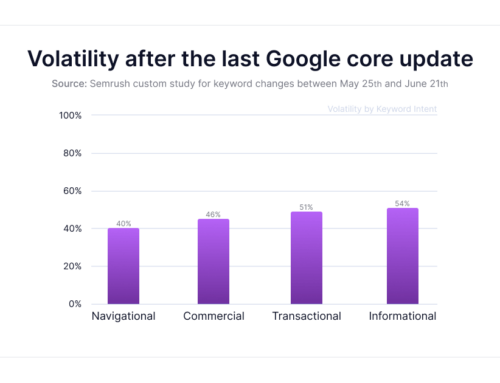The advancements in natural language processing have paved the way for remarkable innovations, one of which is OpenAI’s ChatGPT. This cutting-edge chatbot has the ability to engage in detailed, human-like conversations with users, offering a range of potential benefits for various industries. However, as with any technological progress, concerns surrounding privacy inevitably arise. In this article, we will explore the implications of ChatGPT for privacy, analyzing the potential risks and safeguards that need to be considered in order to maintain the delicate balance between efficient communication and protecting sensitive information.
Understanding ChatGPT
What is ChatGPT?
ChatGPT is an advanced natural language processing model developed by OpenAI. It is designed to generate text-based responses in a conversational manner, enabling users to have interactive and dynamic exchanges with the model. It has been trained on a massive dataset, comprising a broad range of internet text sources, to develop its language understanding and generation capabilities.
How does ChatGPT work?
ChatGPT utilizes a transformer-based architecture, leveraging attention mechanisms to process and generate text. It learns to predict the likelihood of a word or phrase based on the context provided by the preceding text. With this understanding, ChatGPT generates responses in a coherent and contextually relevant manner, aiming to mimic human-like communication. It effectively combines the knowledge and patterns it has learned from its training data to provide useful and informative responses.
Privacy Concerns
Data Collection
To train and fine-tune ChatGPT, OpenAI had to collect a vast amount of data from various sources, including internet text. This data collection process could potentially raise concerns regarding the privacy of individuals who may have unwittingly contributed their words to the training dataset. While OpenAI takes measures to anonymize and aggregate the data, concerns about inadvertent inclusion of private information in this process remain.
Potential Breach of Personal Information
Despite OpenAI’s efforts to anonymize the training dataset, there is always a risk of personal information being inadvertently included. ChatGPT’s ability to generate coherent and context-based responses relies on patterns it has learned from its training data, and if sensitive information is present in the data, there is a possibility of it being reflected in the model’s responses. This potential breach of personal information is a significant privacy concern that needs to be mitigated effectively.
User Profiling
As users interact with ChatGPT, their inputs and conversations can potentially be stored and analyzed to build profiles and gain insights into their preferences, behaviors, or other personal characteristics. This profiling raises concerns about how user data is being utilized and whether it could be misused for targeted advertising, manipulation, or other potentially harmful purposes. It is essential to address these privacy concerns and ensure that users retain control over their personal information.
Lack of Control
Limited Transparency
An issue arises with ChatGPT’s limited transparency when it comes to understanding how the model generates its responses. While it can provide coherent answers, users often lack insight into the underlying decision-making process and cannot verify the accuracy or fairness of the responses. Transparency is crucial for users to trust the system, and without it, concerns may persist regarding potential biases, misinformation, or other undesirable outcomes.
Inability to Enforce Privacy Settings
As ChatGPT operates as a cloud-based service, users have limited control over the privacy settings and security measures implemented by OpenAI. User preferences regarding data retention, sharing, and protection may not align with the default settings in place. Without the ability to enforce individual privacy settings, users may feel uncertain about the extent to which their personal information is protected and shared, further amplifying privacy concerns.
Data Storage and Retention
Long-term Storage of Conversations
When users engage in conversations with ChatGPT, there is a possibility that these interactions are stored for long-term retention. While the exact retention period is not specified by OpenAI, the accumulation of user conversations over time poses potential privacy risks. Stored conversations could contain personally identifiable information or sensitive content that users may not want to be retained indefinitely.
Retaining User Inputs
In order to improve the model and address user queries effectively, OpenAI may retain and analyze user inputs. Although this data is generally anonymized, there is still potential for inadvertent disclosure of personal information. Users may share personal experiences or provide details that are inadvertently linked to their identity. The challenge lies in striking a balance between providing a personalized and accurate response while safeguarding user privacy.
Storage Security Measures
While data retention raises privacy concerns, OpenAI implements security measures to protect stored information. These measures typically include encryption techniques, access controls, and regular security audits. These security measures aim to prevent unauthorized access and protect the stored data from potential breaches or malicious activities. However, it is crucial for OpenAI to uphold these security standards to ensure user data remains confidential and secure.
Third-Party Access
Sharing Data with Other Services
OpenAI may share user data with third-party services in some instances to facilitate various functionalities or to improve the overall experience. The data shared may include user conversations, inputs, or other relevant information. While the intention is often to enhance user satisfaction or provide additional services, the potential risk of unauthorized access or misuse of this shared data cannot be ignored. Users might be concerned about how their data is being shared and utilized by these third-party entities.
Possible Use by Unauthorized Entities
In rare cases, unauthorized entities may gain access to the data stored by OpenAI, either through security breaches or other means. If such access occurs, the confidential information shared by users could be exposed, with potential consequences such as identity theft, privacy invasion, or misuse of personal data. OpenAI needs to prioritize data security and maintain strict protocols to minimize the risk of unauthorized access to user information.
Mitigating Privacy Risks
Anonymization Techniques
To address privacy concerns, OpenAI must employ robust anonymization techniques while collecting and processing training data. These techniques involve removing personally identifiable information from the dataset, aggregating data to prevent individual identification, and applying privacy-preserving methods to mask specific details. By ensuring a high level of anonymization, OpenAI can protect user privacy while still benefiting from a diverse set of training data.
Encrypted Communication
Implementing end-to-end encryption for user interactions with ChatGPT can provide an additional layer of privacy protection. This encryption would ensure that user inputs and responses exchanged during conversations remain secure and inaccessible to unauthorized parties. By adopting industry-standard encryption protocols, OpenAI can significantly enhance the privacy of user communications and build trust among its users.
User Consent and Control
OpenAI should enhance user control over their personal data and privacy settings. By providing granular options for users to manage their privacy preferences, such as choosing the data retention period, controlling data sharing with third parties, or opting for limited data collection, users can have more confidence in their privacy protection. Obtaining explicit consent from users before collecting or sharing their data is also crucial to ensure compliance with privacy regulations and empower users with control over their information.
Regulations and Compliance
Legal Framework
To adequately address privacy concerns, it is essential for OpenAI to operate within the legal framework governing data protection and privacy. Being transparent about data collection practices, implementing appropriate security measures, and ensuring compliance with applicable laws and regulations are fundamental steps. OpenAI must also establish clear guidelines for data usage, sharing, and retention that align with the evolving landscape of privacy rights and legislation.
Compliance with Data Protection Laws
Different regions and countries have diverse data protection laws, such as the General Data Protection Regulation (GDPR) in the European Union or the California Consumer Privacy Act (CCPA) in the United States. OpenAI must navigate these legal requirements by respecting users’ rights, honoring data subject requests, and implementing necessary safeguards to protect user privacy. Compliance with these laws demonstrates OpenAI’s commitment to prioritizing privacy and helps build trust with their user base.
Ethical Considerations
Bias and Discrimination
As with any AI-based system, biases and discrimination can inadvertently manifest in ChatGPT’s responses. These biases may arise due to the biases present in the training data, potentially reflecting societal prejudices or stereotypes. OpenAI should proactively address and minimize biases, implementing measures such as robust bias detection, ethical AI guidelines, and ongoing monitoring to ensure fair and equal treatment of users. Regular audits and evaluations are crucial to identifying and rectifying any unintentional biases.
Unintentional Exposure of Sensitive Information
ChatGPT’s ability to generate context-aware responses may occasionally lead to the unintentional exposure of sensitive information. Even with anonymization practices in place, certain conversational contexts or prompts could result in responses that allude to private or personal details. OpenAI must continuously improve the model’s ability to recognize and handle sensitive information appropriately, minimizing the risk of accidental disclosure and preserving user privacy.
Security Measures
Data Encryption
To protect user conversations and personal information, OpenAI should enforce strong encryption mechanisms. Implementing encryption at rest and encryption in transit for stored data and communication channels respectively ensures that user data remains secure and unreadable to unauthorized individuals or entities. By adopting encryption as a standard security measure, OpenAI can bolster user trust and safeguard their privacy.
Secure Authentication
User authentication is a critical aspect of securing the ChatGPT platform. OpenAI must enforce robust authentication protocols to prevent unauthorized access to user accounts, ensuring that only authorized individuals can interact with the system. By implementing multi-factor authentication and regularly updating authentication mechanisms, OpenAI can significantly reduce the risk of malicious actors gaining unauthorized access to user data.
Regular Security Audits
Conducting regular security audits is vital to identify vulnerabilities and address potential security weaknesses. OpenAI should regularly evaluate its systems and infrastructure with the help of independent security experts to identify any potential risks or areas of improvement. This proactive approach helps ensure that the platform remains resilient against emerging threats and that user data is effectively protected.
User Education and Awareness
Informing Users about Privacy Risks
OpenAI should prioritize user education by providing clear and accessible information about the privacy risks associated with interacting with ChatGPT. This includes transparently communicating data collection practices, data retention policies, and any potential consequences or limitations regarding user privacy. By empowering users with comprehensive knowledge, they can make informed decisions about their interactions and better understand how their privacy is protected.
Providing Transparent Policies
OpenAI should maintain clear and concise privacy policies and terms of service documents that accurately describe how user data is handled. These policies should address data collection, storage, retention, sharing practices, as well as the security measures in place to safeguard user privacy. By providing transparent policies, OpenAI helps users understand their rights and expectations, fostering trust and accountability within the user base.
Empowering Users with Privacy Controls
Allowing users to have control over their privacy settings and the ability to customize their privacy preferences is essential. OpenAI should provide user-friendly interfaces that enable individuals to easily manage their data, make choices regarding data retention or sharing, and have the option to delete their data if desired. By empowering users with privacy controls, OpenAI demonstrates a commitment to respecting user privacy and ensuring their data is handled according to their preferences.
In conclusion, ChatGPT presents implications for privacy that OpenAI must address to ensure user trust, confidentiality, and control over their personal information. By implementing robust anonymization techniques, adopting encryption mechanisms, and providing granular privacy controls, OpenAI can mitigate privacy risks and address concerns related to data collection, storage, and potential breaches. Moreover, compliance with data protection laws, attention to ethical considerations, and transparency in policies and practices will contribute to creating a privacy-centric environment. OpenAI must prioritize user education and awareness, empowering individuals to make informed decisions and giving them confidence in ChatGPT’s privacy protection measures. By striking a balance between the benefits of interactive AI systems and safeguarding user privacy, OpenAI can cultivate trust and shape the future of privacy-conscious conversational AI technologies.








Leave A Comment